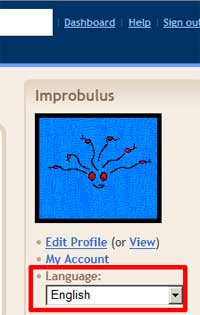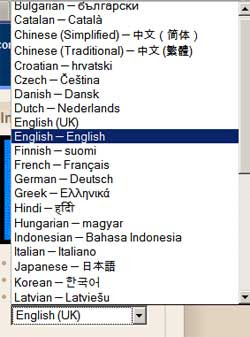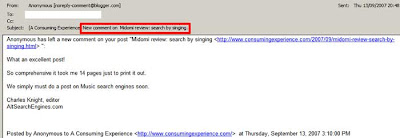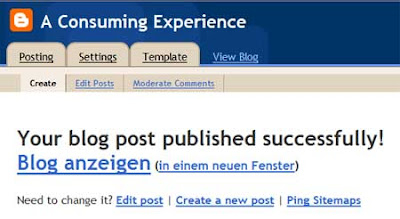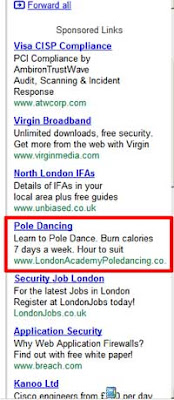Is it now safe to include music in videos you upload to Google's YouTube? I don't mean uploading a commercial music video to YouTube. I mean using music in your own videos - e.g. playing a track as background music for your video or short film, or recording a video of someone who's singing or playing music themselves, or just lip-synching to the playback of a commercial music recording.
The answer isn't in fact straightforward, if like me you want to try your best to stay strictly legal (that didn't stop the BBC from getting YouTube to delete the BBC iPlayer videos I'd put up for my iPlayer preview, their first YouTube DMCA take-down ever, but that's a different story and it seems to have been confidentiality concerns rather than copyright which drove that). Intellectual property rights such as copyright are complicated, there are many strands to copyright, and it's different in different countries, so it's often difficult to work out how the global aspects of the internet affect things. I don't profess to be a copyright expert and as they say this post isn't legal or even practical advice - just a summary of my personal investigations and views based on the position in the UK (for more, please see my detailed outline of what UK music copyright is, how it works, etc).
What music copyright permissions are needed? The ABCs
To copy, publicly perform or broadcast music, you may need several types of permissions (and remember "copying" music includes adding it to your video or uploading it, while "broadcasting" includes download or streaming over the Net, e.g. podcast or video as well as TV and radio transmissions). In the UK, you could be done for copyright infringement even if you didn't know what you were doing was a breach of copyright, and even if you didn't mean to violate anyone's copyright.You might need authorisation or licence from more than one person, because several people could be involved:
A. the composer or songwriter who wrote the music - they own the copyright in the music and lyrics
B. if you play or use someone else's recording e.g. a CD or MP3 or iTunes track, the artists who sang or played on the recording - they have performers' rights in their performances
C. if you play or use someone else's recording, the producer of the recording - they own the copyright in that particular sound recording (which is separate from the songwriter's copyright in the song), usually this is the record company.
If you make your own recording or video of yourself singing or playing a song (or of someone else doing that, e.g. a friend, and you have their permission to record and broadcast their rendition), then you only need A - permission from the songwriter. If the song is out of copyright (also known as "in the public domain"), you don't even need that.
If you use an existing recording in the soundtrack of your video, even if someone is lip-synching to it but you can hear the commercial recording being played, that's a copyright infringement ("making available" the recording) and you need A, B and C. In other words, C ain't enough to make it legal if you don't get A and B too.
What permissions has YouTube got?
Looking at the raft of permissions which are theoretically needed to use or incorporate music in a video, let's now go back to the position of YouTube and videos on YouTube.Record companies - C
We know that YouTube have done deals with lots of record companies to let YouTube users include recordings in their YouTube videos - with Warner Music Group in September 2006, with Sony BMG Music Entertainment and Universal Music Group (UMG) in October 2006, and EMI Music in May 2007.That's C. Permission from the record companies, sorted (but only kind of - I'll come back to that later).
But what about A and B?
Composers - A
At the end of August 2007, YouTube did a deal with the UK's MCPS-PRS Alliance (see Alliance press release and note for members). The Alliance represents composers and music publishers in the UK: 50,000 members, 10 million songs. YouTube will pay the Alliance when their members' "creative talents are being enjoyed on YouTube's service across the UK". (And the Alliance should then pass on payments to their members, but how isn't clear. Various news reports say YouTube will pay the Alliance a flat fee but I won't go further into the financial terms of that deal here, as they're not the main focus of this post: the Alliance press office told A Consuming Experience that "The terms of the deal and all matters relating to the financial aspects of the deal are confidential, anything that has been written about that relates to finances is basically journalists speculating." Similarly, I won't even try to guess how the payment will be distributed amongst members!)Does the YouTube deal with the Alliance mean A, permission from songwriters, sorted?
Well, not necessarily. Societies like the Alliance - called copyright collectives, copyright collecting societies or collecting agencies because they handle requests for copyright permissions or licences for their members and the collection of royalty payments for them - are mostly only national in scope, organised by country.
The Alliance's territory is the UK; they only collect payment for public performances, airplay, downloads etc of their members' music that take place in the UK. That's why the Alliance press release on the YouTube deal talked about "the YouTube community in the UK", and "YouTube's service across the UK" (my emphasis). Their members of course will mostly be UK residents, too. So it would make sense that the Alliance press office told ACE, "All Alliance members' works uploaded on YouTube in the UK is licensed", and "Our agreement covers anything that is streamed into the UK i.e. royalties from clips watched by YouTube users in the UK."
Another gloss to add is that the collecting societies in different countries often have reciprocal agreements with each other. So e.g. U.S. songwriters may belong to a US collecting society, but if their music is played on UK radio the Alliance might collect royalty payments for them and pass it on the US society to pay to their members.
In the case of the YouTube Alliance deal, Andrew Shaw the Alliance's Managing Director of Broadcast and Online told ACE that the deal also covers YouTube video downloads in the UK that include music by composers outside the UK, where their societies have a reciprocal arrangement with the Alliance. In other words, if non-UK songwriters' music is on a YouTube video and the video clip is played or watched by a UK user, YouTube will pay the Alliance for it, who will pass the payment on if they have an arrangement with the writer's collecting society. So it seems the deal doesn't just include Alliance members' music, but also other songwriters' music too - though for convenience I'll just call the lot "Alliance music". What I'm not sure is, does the deal cover all collecting societies that have reciprocal arrangements with the Alliance, period? Or only the ones that have specific arrangements with the Alliance especially in relation to the YouTube deal? I suspect the former, but I don't know.
No doubt you're now thinking, "Aha! What if a YouTube user outside the UK views a video with Alliance music? Is that covered? And what about uploads of videos by YouTube users outside the UK? Isn't an upload technically "copying", which needs permission too?" Well that's astute of you, but of course all ACE readers are astute.
Yep, you're absolutely right, you clever thing you - that's the international aspects of the Net insisting on creeping in to complicate matters. The Alliance press release did mention "user uploads", and so did Andrew Shaw when I spoke with him. But user uploads from which country? The Alliance press office told ACE, "The deal relates to content uploaded in the UK." But what about content uploaded in other countries? It could just be my (mis?) perception, but Mr Shaw was extremely non-committal on this point, which leads me to wonder whether that means that the Alliance YouTube deal doesn't, or just can't, cover downloads or uploads by users who live outside the UK, because that's outside the Alliance's remit. The references in their press release to "in the UK" seem to suggest that too. The Alliance press office didn't comment further when I suggested "so it sounds like it will be legal for YouTube users anywhere to upload videos containing Alliance member-composed music as long as the clips are watched by YouTube users in the UK" - but I really wouldn't take silence as a "Yes". So I'm still uncertain about whether the Alliance licence to YouTube covers uploads of video clips with Alliance music by non-UK YouTube users. I suspect not, because of the territorial issue.
There are other copyright collecting societies which handle licensing of rights and royalty collections outside the UK, sometimes more than one per country depending on the area (see the Wikipedia list of collection societies, they even have a category all to themselves). To complicate matters, a society in one country could mainly represent songwriters or performers from another country, in relation to their rights in the first country - e.g. the US SESAC was originally formed to support the rights of under-represented European artists in the USA. For copyright-related matters in their countries, e.g. copying or uploading that takes place in their countries, wouldn't local collecting societies need to be involved too?
It certainly seems so - e.g. YouTube have a licence from the BMI in the USA (but not other US collecting agencies like ASCAP and SESAC, at least not yet), according to this 2006 article by Brian Garrity.
That article is well worth reading as it explains clearly the different aspects in the USA and the different rights and organisations which could be involved there. For instance, it seems from the article that music copyright in the USA is quite different from music copyright in the UK, and similarly for the alphabet soup that is the world of the collecting societies. For instance, copyright collecting societies in the US seem to be referred to as "performing rights organizations" or performance rights organisations, whereas in the UK concept of performance rights is to do with the performance of, well, a performer, e.g. a singer's singing, and is to do with their rights in their rendition, rather than copyright in a song as such. I confess that while I've just about got to grips with the difference between the Alliance, the PPL and the VPL I've no clear idea yet about the differences between the BMI, ASCAP and SESAC or indeed the NMPA, particularly the boundaries between them and what they do.
Mr Garrity also makes the point that YouTube may have got licences from record companies and the BMI, but strictly it still isn't completely legal to include certain music on YouTube until ASCAP and SESAC (etc?) are on board too. I've seen reports (e.g. Royalty Week, Associated Press and FT) that YouTube has reached interim settlements or interim licensing arrangements with US collecting societies, but it's not clear to me just which ones, and whether they include ASCAP and SESAC.
Now I mentioned the NMPA earlier. In fact, YouTube are currently being sued in the US for breach of music copyright by the NMPA, e.g. see this New York Post article. The NMPA or National Music Publishers' Association represents music publishers in the USA - but the BMI etc also represent publishers, which is why I say I still haven't got to the bottom of the US position yet. What is certainly clear from the lawsuit is that not all rights holders in the USA have agreed to license their music to YouTube.
So what it all boils down to is this: UK video uploads and downloads which include Alliance music may now be legal (with the further twists I'll come to below), but the YouTube Alliance deal doesn't mean that it's legal to upload or play those videos outside the UK.
Here's another gotcha. Mr Shaw also told me that after the YouTube deal it will be legal for YouTube UK users to include Alliance music on the Alliance's "usual" licence terms, such as "non-derogatory" use only. Only YouTube and the Alliance know the exact details of their deal. That "non-derogatory" requirement wasn't announced in the press release, so how would we mere users have known that that non-derogatory use is a condition of the licence? Maybe I've not researched it fully enough, but the only Alliance licence I could find was their online exploitation licence, so I'll take it as a typical example of their "usual" terms. Now that licence says in item 4.3 that the licence doesn't extend to:
(a) the reproduction or communication to the public of any Commercial Work or part thereof in the form of a parody or burlesque of any Commercial Work or of any composer or writer of any Commercial Work or any band or other group of artists which includes any composer or writer of any Commercial Work; or
(b) the use of any Commercial Work in any context which the Licensee ought reasonably to consider as being likely to be insulting or detrimental to the composer featured on the commercially released sound recording of the music or the relevant Member or associated society member.
I'm guessing that that must be what Mr Shaw meant by "derogatory". In other words, that licence says that the licensee can use Alliance music as long as they don't do a parody or burlesque of the music or the songwriter etc, or use it in a way that's insulting etc to the composer. So it seems there's a hidden restriction to watch for: don't shoot the pianist, and certainly never ever make fun of the songwriter!
As you can tell, the only thing I'm halfway confident about at the moment is that YouTube users who live in the UK can safely include Alliance music in their YouTube video uploads if they do it in a "non-derogatory" way (with the further twist I add below, yes there's more), and that the Alliance will get paid by YouTube when YouTube videos containing Alliance music are played by UK YouTube users.
Performers - B
Now I come to the twist. The eagle-eyed will have spotted that I haven't even got to B yet - musicians' rights in their performances, i.e. their singing or playing. As I mentioned, in the UK this is not the same as a songwriter's copyright in the song they perform, or the record company's copyright in the sound recording it makes of their performance.If you or your friend sing or play Alliance music "live" on a YouTube video in the UK, that's fine. But what if you use a commercial recording of Alliance music with other people (like a pop star) singing or playing on the recording? YouTube may have a licence from the Alliance as far as the songwriter's copyright in the song is concerned, and from the major record labels in relation to their copyright in the sound recording - but what about the performers' rights in their performances?
In the UK, the PPL is the collecting society which handles performers' rights in sound recordings, i.e. when recorded tracks are broadcast or publicly performed in the UK, whether played in a club or restaurant or on the radio. (The VPL deal with rights in commercial music video recordings, but that's another matter.)
You get my point now, don't you? Just as the picture in the US isn't complete without ASCAP and SESAC, if a UK YouTube user uploads a music video which includes Alliance music from a recording by a British artist, it's not legal unless the PPL have also given a licence to the YouTube. And they haven't, yet. In fact the PPL are currently in negotiations with YouTube, but until that's sorted it strictly it isn't legal to include audio recordings with performances by PPL members in your YouTube video - even if you live in the UK, even if the music is composed by an Alliance member - UPDATE: unless the performers' rights have been transferred to the record companies which own the copyright in the recordings and have done deals with YouTube.
That's why I'm with Brian Garrity rather than Mashable, who said "YouTube mavens no longer have to fear being sued for music being played in the background of their videos, or worry about their content being removed. At least for labels and artists by the MCPS-PRS Alliance". Or indeed the Financial Times, who said the YouTube-Alliance deal would "legitimise the use of recorded music" on YouTube. The Times reported that "videos using their [Alliance members'] music as a soundtrack will no longer be infringing copyright", and even the New York Times said the YouTube-Alliance deal allowed "tracks from performers like Cliff Richard and Amy Winehouse to be used in videos" (echoing the Associated Press). Reuters similarly said the deal "allows users of the Google site to incorporate recorded music legally into videos". All of them: sorry, but, being pedantic about it, wrong wrong wrong. Brian Garrity (and me!): right. No PPL, no legitimacy in the UK, for the use of sound recordings anyway.
So B, performance rights - NOT sorted.
UPDATE: I am told that the standard practice, during the recording process, is for performers to transfer their performers' rights over to whoever has the copyright in the recording, normally the record companies, for the copyright owner to then exploit the performance / sound recording further, i.e. generate revenue from it.
The performers do retain certain rights in the sound recording with regards to "equitable remuneration" whereby they would receive compensation for the "broadcast and communication to the public" of those performances they were involved in.
However the "making available" of sound recordings, in services such as "on-demand" streaming of programmes, is not included in the "broadcast and communication to the public" definition - and therefore performers don't get equitable remuneration for it, and would therefore not be directly involved in the licensing process for "on-demand" services.
So, in the case of YouTube videos incorporating background music, the rights that would be required would be:
- the publishing rights in the musical work, the song (which is licensed by MCPS-PRS-Alliance), and
- the rights in the sound recording itself - which would be licensed by the copyright-owning record company directly (the direct deals done between the major record labels and YouTube) and/or with PPL, who would represent those members that wished to be included in such a licensing deal.
Ah c'mon, so is it legal to upload music with your YouTube video, or isn't it?
Where are we now, then, and are we there yet? Well, no.In my personal view, at the moment you are 100% totally safe to add music to your YouTube video only if:
- the music is out of copyright (the Public Domain Works' list of public domain composers is helpful, though not exactly typical YouTube fan fodder), or
- you or your friend sing or play the music yourself (rather than using a pre-recorded track) in a "non-derogatory" fashion, and:
- you're in the UK, and the music is by an Alliance member (or, possibly a member of an associated collecting society), or
- (maybe - this is pure guesswork so don't go by it, could someone in the know possibly confirm?) you're in the US, and the music is by a BMI member?
Strictly, no - for two reasons.
One, remember the ABCs - it's got to be all the ABCs, not just one. Authorization from the record companies, C, just isn't enough. As Mr Garrity pointed out in the US context, the composer / songwriter / music publisher has also got to give their OK before it's fully legal, if it's their song on the recording (that's A). Remember the NMPA lawsuit. And it's the same in the UK. Plus, there may be performance rights of the artist to consider too (that's B), though I'd be the first to say I'm not sure about the position on performers rights in the USA, UPDATE: and if the record company that's done a deal with YouTube owns the performers' rights for their recordings, as they normally will, then that should be covered by the deal too.
Two, if you closely look at the YouTube news releases about their deals with the record companies (linked to above), you'll notice a couple of interesting things.
First, the Sony BMG press release for instance only says the deal will "allow users to include certain SONY BMG sound recordings in their own uploads"; even the Warner press release says they can "request the removal of copyrighted content from YouTube when an artist elects to remove it", despite the YouTube blog saying " You'll be able to enjoy and share these videos without concern that they could be removed. What's even better is that Warner is the first record label to embrace and support your creativity by authorizing use of their music content for free".
Second, in all those press releases they refer to the ability for the record company to ask YouTube to remove content which is not available or authorized, with some emphasis on YouTube rolling out a special content identification, reporting and filtering system. To me, that suggests that in fact not all the recordings from those labels may be freely uploaded by YouTube users, after all. Some may be, some won't be.
Where does that leave us poor users? It seems to me that if you are a YouTube user who wants to stay legal, it's an almost impossible task (even if you're in the UK), unless the music you include in your video is sung or performed live for the video and the music is definitely out of copyright. Because, really, how do they expect us mere users, even in the UK, to figure out if a particular song is Alliance music or not? Ask the Alliance? Is there a publicly searchable database of Alliance music? They do have a database of works registered with them (and even a detailed guide to searching it), but it doesn't seem to be publicly available.
Now if I were the Alliance and wanted to make money for my members, personally I'd make that list of works fully public - to encourage YouTube users to include Alliance music in YouTube videos, so that every time the video is played in the UK, Google / YouTube have to pay the Alliance! But that's a different matter.
The same holds true for BMI members' music. How do you figure out which music is by a BMI member?
And how would they expect users to know whether a particular commercial sound recording, even if it's on a Warner, Sony BMG etc label, is an authorised one - given that only some of those labels' content seems to be included in their deals with YouTube? I don't see the record labels putting out an online database of authorized content; do you? (Though again, if I were them I would, in order to get more money out of Google / YouTube or advertisers.)
The answer has got to be, it's virtually impossible. They can't really expect users to work it out. YouTube and the record labels corporations and societies are big boys and they're not stupid, they must know that YouTube users won't in practice be able to tell which songs or recordings are licensed and which ones are not, even users who want to try to stay legal.
So the inevitable conclusion seems to be this: maybe they, the big corporations and collecting societies, don't really expect users to try to stay legal, maybe they don't really care about prosecuting or suing us us little individual YouTube users after all. The real goal may be just to get a slice of the advertising revenue action.
We all know that grannies and little girls got sued over music MP3 file sharing, but hopefully we're in a different era now, hopefully the record labels have learned their lesson from their experiences with Napster, Kazaa etc, and have started to appreciate that they can make money by adapting to new business models. The sheer numbers of people who, without knowing or caring about the niceties of copyright licences, uploaded illegal music and videos to YouTube in droves, will surely have been a factor - this isn't quite mass civil disobedience wreaking a sea change, as most of those users probably didn't even think about copyright never mind deliberately deciding they wouldn't obey the copyright laws, but it's not that far off. Numbers must surely help in any "can't beat 'em, join 'em" kind of assessment.
As Eliot van Buskirk suggested in Wired and Hiawatha Bray in the Boston Globe nearly a year ago when Google acquired YouTube, the record labels and other media companies seem finally to have realised that they can get free publicity from fans advertising their songs on YouTube through user-generated content, namely fan-created music videos and other imaginative derivative works, and that they can even make money from that content. Indeed, CBS spokesman Dana McClintock was quoted in the Boston Globe as saying that his firm may leave the illegal copy of an upload video alone because CBS will get a slice of any ad revenue generated by the video.
YouTube is, after all, very big business. We all sense that, but the stats show it too. In August 2007 YouTube was the 8th highest ranking brand in the US, according to Nielsen/Netratings, and 36th in comScore's Ad Focus rankings, reaching 25% of the US population. comScore reported that in July 2007 Google sites were the top US video property with nearly 2.5 billion videos viewed (27.0 percent share of videos), 2.4 billion of which occurred at YouTube alone. More than one out of three U.S. Internet users viewed video on YouTube.com that month. Even in the UK, in the week ending 19 May 2007 YouTube ranked 3rd on the Net communities and chat front, Hitwise reported, and YouTube was the 3rd most popular search engine term in the 4 weeks up to 9 June 2007. That's a lot of visitors and users, that's a lot of money making opportunities - whether it's via advertising revenues or some other creative Web 2.0 business model based on user-generated content (UGC) or indeed something else that's yet to surface (as to which see generally Jyri Engeström's inspirational and constructive 5 principles for Web 2.0 success).
Anthony Lilley said in the Guardian recently that he felt the YouTube-Alliance announcement was connected in some way to YouTube's trialling of InVideo, which overlays ads on videos, and thought the announcement might mark the turning point for online video business models. YouTube have since May 2007 also started offering revenue sharing and promotional opportunities to their most prolific user participants (i.e. video makers) as "content partners", in order to encourage the creation of popular visitor / audience-generating and advertiser-attracting user-generated videos - a very smart move, I think, and I believe it's a sign of things to come.
So, whatever the strict legalities, it may be that given the vast numbers of YouTube videos with illegal content, the logistical difficulties and resources that might be needed to police it all despite YouTube's identification or fingerprinting technology, and the huge potential income that could be derived from YouTube user-created videos through advertising etc, the rights holders may in fact decide not to bother to sue individual users (Google's vast pockets may of course be another factor). But I think that that still depends on all rights holders involved striking agreements with YouTube, particularly as to financial terms on monetary compensation and revenue sharing, which the record companies and collecting societies all think is fair. And the lawsuits against YouTube haven't been resolved yet. So if you want to add music to your YouTube video where the legalities are still unclear, remember you still do so at your own risk...!
Tags:


